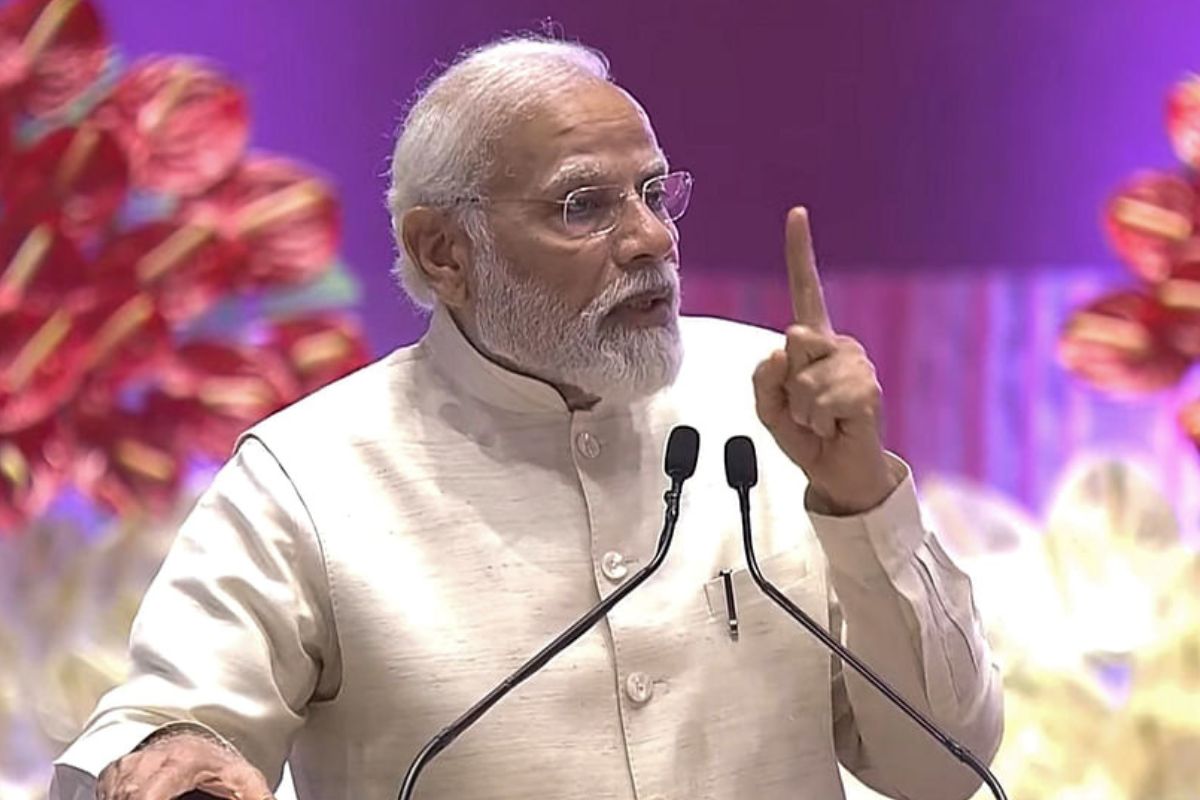Congress refutes allegation of playing a role in AAP’s defeat in Delhi polls
Senior Congress leader Ashok Gehlot said, “The allegations made by AAP against Congress for making them lose in Delhi are completely baseless.”
“No concrete efforts were made to strengthen the Panchayati Raj Institutions (PRIs) during the Congress rule,” Modi said while inaugurating the ‘Haryana Kshetriya Panchayati Raj Parishad’, a two-day event of the BJP.

Prime Minister Narendra Modi on Monday slammed the Congress for not realising the relevance of the Panchayati Raj system in villages till four decades after the country’s independence.
“No concrete efforts were made to strengthen the Panchayati Raj Institutions (PRIs) during the Congress rule,” he said while inaugurating the ‘Haryana Kshetriya Panchayati Raj Parishad’, a two-day event of the BJP, via video conference. He also charged the Congress with leaving the Zila Panchayat system to its own fate.
Advertisement
The PM said maximum work remained limited to figures and documents during the Congress regime, Jammu and Kashmir being its biggest example.
Advertisement
In 2019, after the abrogation of Article 370, for the first time gram panchayat and district-level elections took place in Jammu and Kashmir in which over 33,000 local public representatives have been elected. For the first time, democracy got established there on the ground level, he said.
The PM further said that after 2014, the BJP government has worked a lot to strengthen Panchayati Raj and local Swaraj and for Panchayati Raj bodies. A provision of over Rs 2 lakh crore had been made which was three times in compression to the last government.
He also urged party workers to take the benefits of the Panchayati Raj system to the last person. “As a representative of BJP, you have to take the benefits of the Panchayati Raj system to the last person standing in the last line of society. I would request all of you that you should go and stay at some small place in your area for two nights a week and sit with the people there”.
The PM said the country today was moving ahead unitedly to realise the goal of a developed India and to fulfil the resolutions of ‘Amrit Kaal’. “During the 25 years of the journey of ‘Amrit Kaal’, we have to keep in mind the experiences of past decades,” he said.
The road to a developed India passed through tier 2 and tier 3 cities and through villages which were becoming modern, he said, adding a new hope and energy was visible in the hinterland and in small towns.
Advertisement